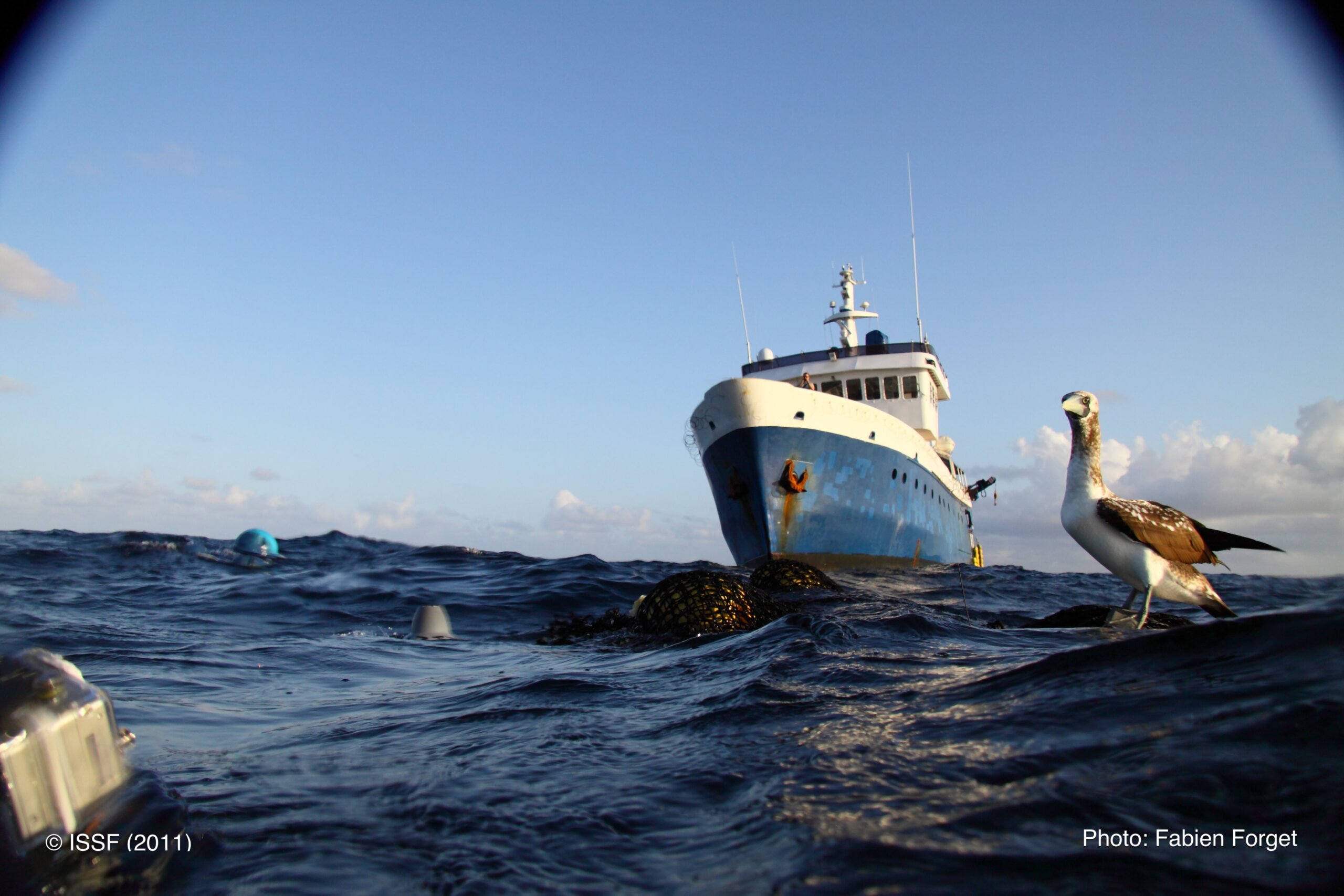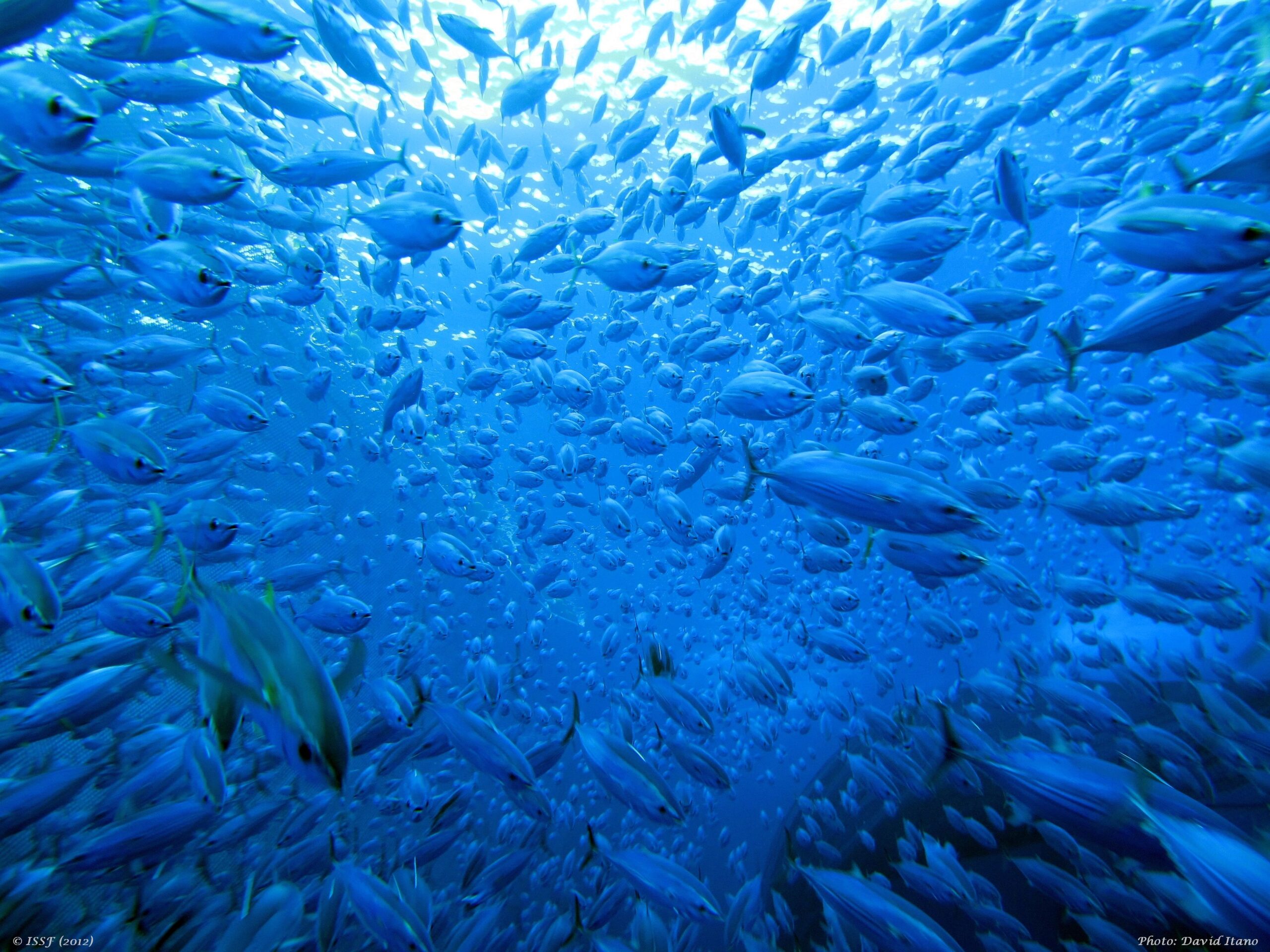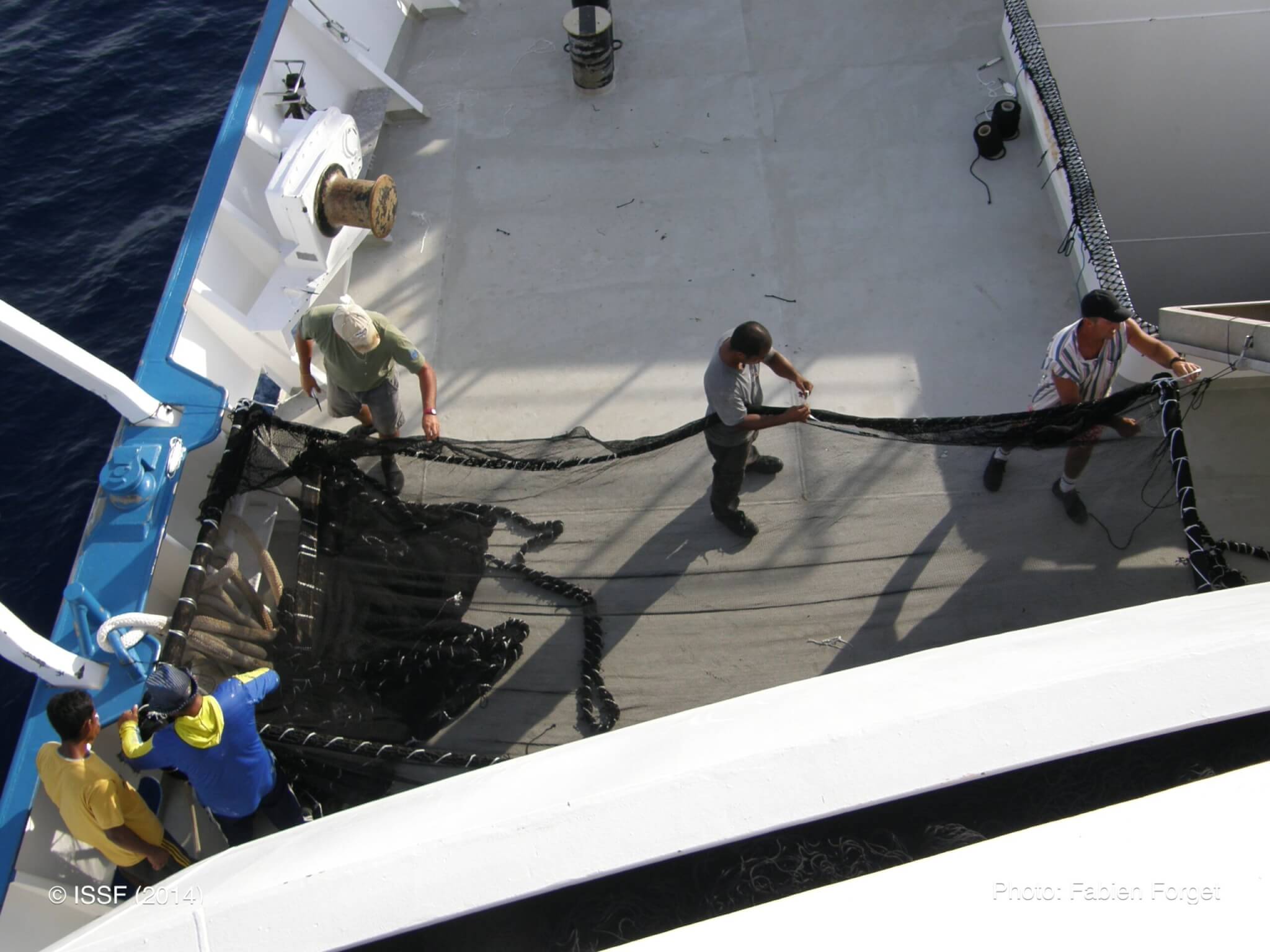The International Seafood Sustainability Foundation (ISSF) today announced the appointment of three new members to its Board of Directors and two new members to its Scientific Advisory Committee (SAC). These leaders bring extensive experience in fisheries science and management, economics, sustainability standards, and global marketing — further strengthening ISSF’s cross-sector approach to advancing the long-term conservation and sustainable use of global tuna fisheries.
New Appointments to the ISSF Board of Directors
ISSF is pleased to welcome to its Board of Directors Melissa Murphy, Distinguished Service Professor of Marketing and Corporate Entrepreneurship, Tepper School of Business, Carnegie Mellon University & President, Melissa Murphy Marketing; Dr. Josu Santiago, Head of the Tuna Research Area, AZTI; and Amanda Stern-Pirlot, Chief Standards Officer, Marine Stewardship Council (MSC).
The ISSF Board is composed of a diverse group of leaders from non-governmental organizations (NGOs), marine science, government agencies, and the seafood industry, representing multiple countries. This structure ensures that ISSF conservation measures, with which ISSF participating companies commit to conform, are shaped by a balance of scientific rigor, market realities, and on-the-water experience.
“ISSF is unique in bringing together scientists, NGOs, governments, and seafood companies in a single governance model,” said Susan Jackson, ISSF President. “This diversity isn’t symbolic — it is essential to designing conservation measures that are both science-based and implementable in real fishing operations. Our new Board members deepen that strength.”
New Members Join the ISSF Scientific Advisory Committee
ISSF also welcomes Dr. Patrice Guillotreau, Senior Researcher, IRD – French National Research Institute for Sustainable Development, and Dr. Graham M. Pilling, Deputy Director, FAME (Head of the Oceanic Fisheries Programme), The Pacific Community (SPC), to its SAC — a group of leading marine and fisheries scientists.
In addition to offering guidance on ISSF research priorities and supporting the many technical reports ISSF publishes — notably the annual Status of the Stocks report and analysis of tuna fisheries against MSC Fisheries Standard criteria — the SAC also provides reference material for the ISSF Board of Directors to consider prior to acting on sustainability efforts.
“We are honored to add Dr. Guillotreau and Dr. Pilling to our SAC,” said Dr. Victor Restrepo, ISSF Vice President, Science & Chair, SAC. “Their experience — spanning stock assessment, harvest strategies, economics, and socio-ecological systems of tuna fisheries — will enhance the scientific foundation that drives ISSF conservation measures, policy appeals, and research efforts.”
ISSF also extends its sincere appreciation to two long-serving SAC members, Dr. John Hampton and Dr. Dale Squires, who are concluding their service.
Dr. Hampton served as Chief Scientist of the Fisheries Aquaculture and Marine Ecosystems Division of the SPC, focusing on oceanic fisheries. His work spans the biology and ecology of tunas, fisheries monitoring, stock assessment, and harvest strategy development for western and central Pacific tuna fisheries.
Dr. Squires served as the senior scientist and economist at the U.S. National Marine Fisheries Service, while also carrying out his duties as an honorary professor at the University of Southern Denmark and as an adjunct professor of economics at the University of California San Diego. He has co-authored six books and written over 75 academic papers.
ISSF is grateful for their longstanding partnership, expertise, and dedication to advancing the science that underpins sustainable global tuna fisheries.
Learn more on the ISSF website: https://www.iss-foundation.org/about-issf/
About Melissa Murphy
Melissa Murphy is a Distinguished Service Professor of Marketing and Corporate Entrepreneurship at the Tepper School of Business at Carnegie Mellon University, teaching both graduate and undergraduate courses in Integrated Marketing Communications, Marketing, New Product Development, Launching New Products, Product and Brand Management and Brand Strategy. She also is President, Melissa Murphy Marketing.
As a seasoned corporate executive, Ms. Murphy has worked with an impressive list of companies and campaigns with worldwide recognition, including StarKist, Del Monte Foods, and Heinz. She has fashioned numerous award-winning branding and social media campaigns; championed employee management and communications to build brands internally and improve morale and employee satisfaction; managed numerous industry and company crises and issues; founded and/or managed multiple industry organizations; and spearheaded communications efforts for a myriad of corporate initiatives. She earned a bachelor’s degree from the University of Pittsburgh and a master’s degree from Northwestern University.
About Dr. Josu Santiago
Dr. Josu Santiago received his Ph.D. in Biology, specializing in tuna biology and tuna population dynamics. He is Head of the Tuna Research Area at AZTI (Basque Country, Spain), where he has worked since 1985. At AZTI, he has participated in several national and international research projects in the field of fish biology and fish stock assessment, particularly in temperate and tropical tuna. Dr. Santiago also has fostered scientific collaboration between AZTI and ISSF.
He has contributed to numerous publications and has been actively involved in the scientific processes of most tuna RFMOs. Since 2015, Dr. Santiago has been the scientific coordinator of the EU Delegation to the Inter-American Tropical Tuna Commission (IATTC), a position he also held in relation to the Western and Central Pacific Fisheries Commission (WCPFC) and International Commission for the Conservation of Atlantic Tunas (ICCAT).
From 1992-1999, he was Head of the Department of Fishery Resources of AZTI and Chairman of the Albacore Working Group of ICCAT. Among other responsibilities, Dr. Santiago has been Director of Fisheries of the Basque Government (Spain) for three mandates (1999-2009) and chairman of the Standing Committee on Research and Statistics (SCRS) of ICCAT for two mandates (2011-2014).
About Amanda Stern-Pirlot
Amanda Stern-Pirlot is the Chief Standards Officer at the Marine Stewardship Council (MSC), where she leads the development, management, and review of the MSC Fisheries and Chain of Custody Standards. She is responsible for ensuring the standards remain robust, science-based, and relevant for global sustainable fishing and seafood traceability. Her role involves overseeing the technical integrity of the standards, managing stakeholder engagement in the standard-setting processes, and directing the organization’s work on assurance and standard-related policy to drive positive change in marine conservation and fisheries management.
Prior to that, as Vice President of Science at MRAG Americas, a marine resources consultancy company, she ensured that the organization maintained a strong science- and evidence-based ethos, producing high quality and credible technical outputs.
Ms. Stern-Pirlot also served as a member of MRAG’s Executive Team, overseeing day-to-day actions and decision making to manage projects and maintain company processes, business development, and strategic planning. Prior to that role, she served as MRAG’s Director of the Certification Division and expanded a program accredited to conduct assessments against the Marine Stewardship Council and other sustainability standards. She also worked as a natural resources analyst for the At-Sea Processors Association.
She received an M.S. in Marine Ecology from the University of Bremen.
About Dr. Patrice Guillotreau
Dr. Patrice Guillotreau has been a Senior Researcher at IRD – French National Research Institute for Sustainable Development since 2020, after serving as a Researcher from 2007-2009. As a fisheries economist, he focuses on the organization and dynamics of fisheries and seafood markets, particularly the socio-ecosystems of tuna fisheries.
He was an Assistant Professor of Economics in 1994-2007 and a Full Professor of Economics in 2010-2020 at Nantes University, teaching sustainable development and maritime economics (economics of fisheries, aquaculture, shipping, and marine renewable energy), where he also led several Master of Science programs.
In his research, Dr. Guillotreau has coordinated several international, EU, and national projects on seafood trade, margins, and prices in seafood value chains, the resilience of marine systems to global change, and the sea-borne sustainable development of small-island developing states in the Southwest Indian Ocean.
Dr. Guillotreau has published more than 130 scientific articles, book chapters, and study reports. He earned a Ph.D. in Economics from the University of Rennes.
About Dr. Graham M. Pilling
Dr. Graham M. Pilling is the Deputy Director, FAME (Head of the Oceanic Fisheries Programme) at The Pacific Community (SPC), where he is the SPC lead in the Scientific Committee work of the Western and Central Pacific Fisheries Commission (WCPFC) as well as in the delivery of scientific and technical information to SPC’s Pacific Island County and Territory membership.
He has over 30 years of experience analyzing, assessing, and providing scientific advice on tropical, temperate, and polar marine and freshwater ecosystems and fisheries. Key research areas include harvest strategies, pelagic and demersal fisheries stock assessment, and climate change impacts on fish stocks and ecosystems.
Since 2010, Dr. Pilling has worked in SPC’s Oceanic Fisheries Programme — and began leading the program in 2019 — providing stock assessments, analyses, and advice to support management of WCPFC fisheries.
Before joining SPC, he was Head of the Seas and Ocean Group in the Centre for Environment, Fisheries and Aquaculture Science in Lowestoft in the United Kingdom. Dr. Pilling provided stock assessment and ecosystem advice to the U.K. government and the European Union as well as on industrial tuna fisheries and artisanal reef fisheries in the tropics and Arabian Gulf.
Dr. Pilling received a Ph.D. in Fisheries Biology from Imperial College in London.




